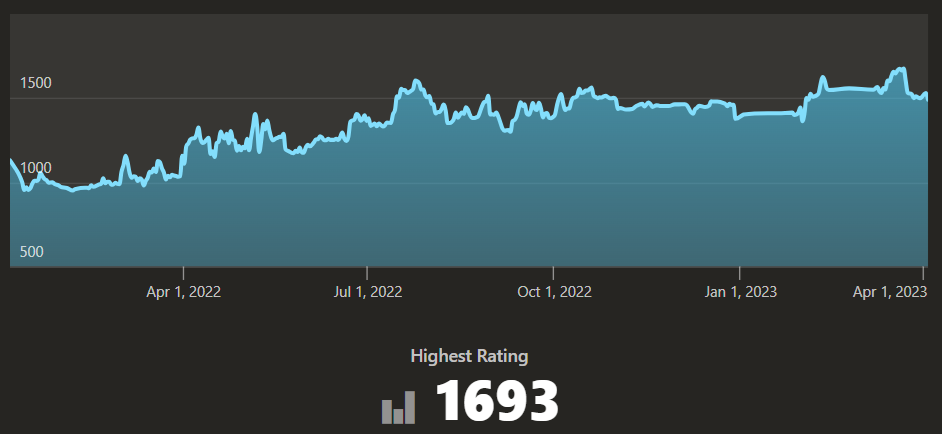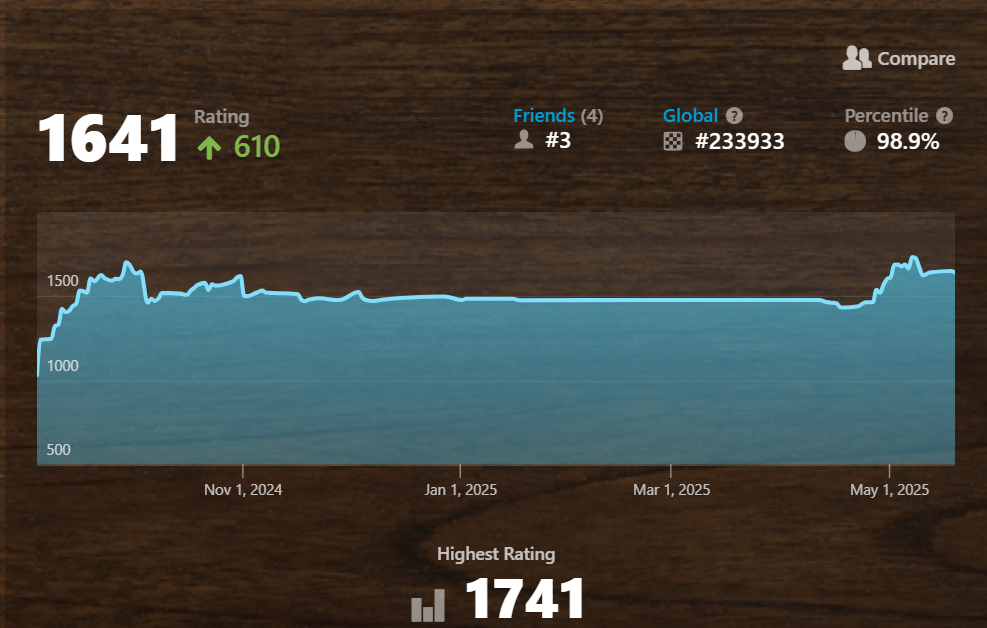Why is Chess more important than you think?
16/05/2025

Chess Pieces
One of the passions I had in the last few years is chess and even though I always knew the basics behind the game on 64 squares, I never took it seriously until one day in late 2021, one of my friends asked me if I follow the Chess World Championship just as the famous Game 6 took place, a rollercoaster involving 136 moves and ultimately marked the start of Magnus Carlsen's journey to another world title, showcasing why Carlsen is one of the greatest players of all time.
Even though at first I thought I will probably just play for a few days on one of the websites and get bored of it soon after, the resumption of college classes in person marked the beginning of a story that goes to this day, as I was in a moment when I needed a bit of a reset after having spent the last two years or so at home teaching students and attending (or at least trying to!) the various college classes I had at the time. With all of these things in mind, together with the surge of popularity chess had during the beginning of the decade as Netflix's Queen's Gambit emerged as a massive hit worldwide, bringing many newcomers and casual players to the game.
Since I always enjoyed strategy games, chess quickly became one of my main hobbies whenever I didn't have to do any kind of schoolwork or teaching, so I started taking it more seriously, as I would play several games every time I had the chance and during the next few months, I managed to improve my game considerably and climb about 500 rating points over the course of the first half of 2022 and I felt pretty good about becoming a good casual player. I already knew that becoming a master or even a grandmaster was out of reach as I knew from my competitive programming career that in order to reach such levels, years of practice are required and I wasn't planning to spend this much time on chess anyways. Still, I was going to give it a try and become as good as possible, and even if I were to not succeed, I would at least have a healthy habit which would complement my existent skills and keep my mind sharp.
One day, I even went to one of the most famous parks in Bucharest where many chess players used to hang there, and even though the chess scene around Cismigiu Park is no longer what it used to be several decades back, playing chess on board gave me a different perspective and made me like the game even more.
During the summer, as I came back to my hometown, I was exploring the various neighborhoods to see whether there is any place where people play chess and after some days of search, I saw a bunch of benches where mostly older people were gathering to play during afternoons. Even though at first I didn't join the games, I did convince one of my friends who was better at chess to come with me and over the next few weeks, I would meet the people there, exchange stories as well as learn more things about chess, but also various lessons, as you will see next.
One day, a man in his 50s came there and I soon realized that he was way more interesting than most of the other players there, as he was quite good at chess and whenever he was explaining the logic behind his strategies and his moves, he had a bit of an accent whenever speaking Romanian. After a few discussions as well as a few games, it turned out that while he was not born in Romania, he can trace his origins to this country as his grandparents left the country due to the war and the subsequent political changes and after the 1989 Revolution, after he visited his ancestral lands, decided to move to this town and practice psychology.
Even though he only came to the chessboards a few times, we actually stayed in touch for a few more months as I helped him with some IT related queries while also having him help me work on my chess as well as some other psychological related tricks that were supposed to be useful on the chessboard, but soon after I realized they are useful in other life aspects as well. Among others, having a winning mindset and having a clear plan and strategy on how to reach certain goals are important parts of every successful person's journey and I can't emphasize this aspect enough.
As university started again and I was heading towards my final exams and the bachelor's thesis presentation, I didn't have that much time to work on my chess, but the advice I got from the various people I met while playing chess helped me establish a broader presence online and later on ensure that I can actually earn a solid living out of coaching people for various computer science competitions, with the dream that one day, I will be able to expand on this and help people with more than just coding and problem solving.

My evolution during the first period of playing chess
All in all, after 1 year and a few months, after having reached almost 1700 rating on chess.com, I took a break and I closed that account, as I had a lot of work to do and I was also getting a bit frustrated over the lack of progress.
After a bit of a break and a move to a new country, I decided to restart my chess account as I had more time and I wanted to have another hobby. Even though I haven't been practicing all that much as of late, I realized that having a strong presence helps with showcasing my qualities as well as having new clients potentially find me through this relatively unusual method. Compared to my first account, I never insisted on playing whenever I didn't feel like doing it and I also took the advice I received over time from the various friends I know more seriously and recently, I finally surpassed 1700 rating on rapid, reaching even almost 1750 in the process.

My evolution during the second period of playing chess
Even though I am far from being a great chess player and I don't intend to become a master or anywhere close (frankly speaking, if I ever reach 2000 rating that would be a bit of a miracle), chess is a game that teaches people a lot of valuable lessons, including but not limited to:
- Strategy and planning for the medium and long term: Chess is a game where every action has a consequence and not carefully calculating all possibilities can be fatal.
- Knowing when to take risks: Sometimes, even though a move is not the most optimal right away, it may be very hard to counter and thus you can end up in a really good position later on.
- Becoming good at chess correlates with picking up a large variety of other skills: Even though chess has relatively simple rules, it is a very complex game and countless books have been written about it. In addition, playing chess and understanding different perspectives can lead to success in other aspects of life as well, and personally I observed this especially during my classes, as I combined my coding and chess skills whenever I had to explain the logic behind certain strategies or certain aspects of earning good results in competitions.
- Chess is a good way to connect with other people: It transcends language and cultural barriers, while making room to valuable relationships which value respect, sportsmanship and fair play.
All in all, chess is a very important hobby of mine and a game that helped me discover and learn a large variety of valuable lessons. I recommend everyone who is reading this blog and doesn't play the game to give it a try and even though you don't intend on becoming a seasoned player, it is a way better way of spending your time than it would be to mindlessly scroll for hours or try other habits.
You can follow me here as I progress through the rapid rating ladder and I invite you to try this method of personal development.
Enjoyed this post? Contact me by email here or using the social media links below—and follow this blog by subscribing via the form at the bottom!